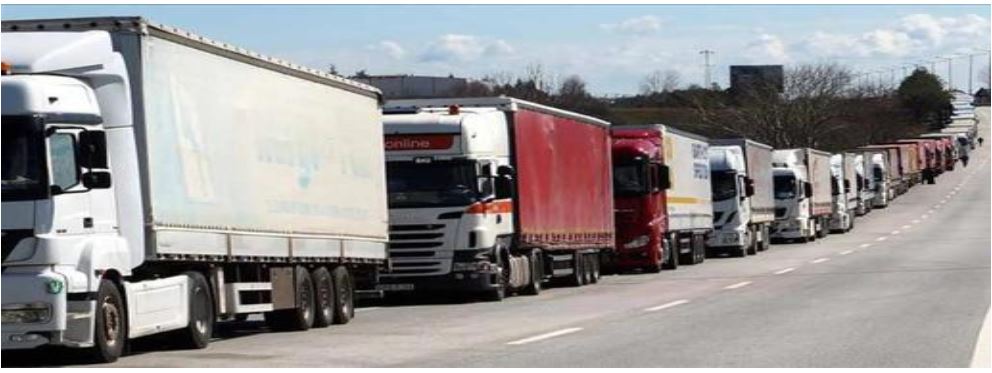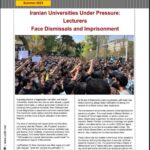
According to the latest reports, the truck drivers’ strike, which began on Monday 19 May, has entered its third week and swept across all 31 provinces, halting freight transportation in over 150 cities across Iran.
The Union of Iranian Truckers and Drivers’ Associations announced that by the end of the fourth day of the strike, 105 cities had joined this protest, with subsequent reports indicating participation in as many as 163 cities. It is estimated that over 400,000 out of approximately 433,000 registered heavy goods vehicles (HGVs) remain off the road.
The recent truck drivers’ strike protests against the inefficient and anti-people policies of the Iranian regime, which have made living and working conditions more difficult for them and other working people. The protesting drivers object to the three-tier diesel fuel pricing plan. This plan’s consequence is a significant increase in fuel costs, which, along with rising expenses for spare parts, tires, oil, and road tolls, has severely limited drivers’ ability to continue sustainable economic activity.
In addition, drivers are protesting a 45% increase in insurance premiums, which was approved as part of the government’s Seventh Development Plan.
Officials of the theocratic regime have not only failed to address the drivers’ demands but have also dismissed their protests as “rumours” and called this strike “unnatural.” The reality is that drivers across the country, contrary to the deceptive promises of Islamic Republic officials, have faced threats, fines, severe repression, and violence, including the arrest of numerous drivers and the use of pepper spray against them. Authorities have also threatened that any driver refusing to load cargo would have “all their documents invalidated, services cut off, and a judicial case opened directly against them.”
The right to strike, as one of the methods of struggle for working people to achieve their rights, is supported by ILO conventions and the Universal Declaration of Human Rights. However, the Islamic Republic of Iran has not ratified ILO Conventions 87 (Freedom of Association and Protection of the Right to Organise) and 98 (Right to Organise and and Collective Bargaining), despite ongoing discussions and calls from workers’ organisations for their ratification. This non-ratification allows the regime to continue its systematic crackdown on independent labour organising and strikes.
The nationwide truck drivers’ strike is part of a professional struggle that, alongside the protests of workers, retirees, nurses, teachers, and other working people, strengthens the popular movement against the theocratic dictatorship and paves the way for the realisation of social justice and the establishment of a national and democratic republic. This strike has garnered significant solidarity, with taxi drivers in a number of cities like joining the movement, and the Syndicate of Workers of the Vahed Company of Tehran and Suburbs Bus Company issuing a statement of support. These widespread actions highlight a shared experience of hardship, especially as the minimum wage set by the regime for 2025 covers only about 52% of a household’s basic needs, falling drastically short of the estimated poverty line of approximately $400 per month for a family of three, compared to the current minimum wage of around $120.
The International Transport Workers’ Federation (ITF), representing over 16 million workers across 150 countries, in a statement published on Wednesday 4 June, declared its unwavering solidarity with the courageous haulage drivers of Iran who are striking against economic injustice as well as political repression by the regime. The ITF’s statement can be read in full at: https://www.itfglobal.org/en/news/solidarity-irans-striking-truck-drivers.













 Posted in
Posted in 











